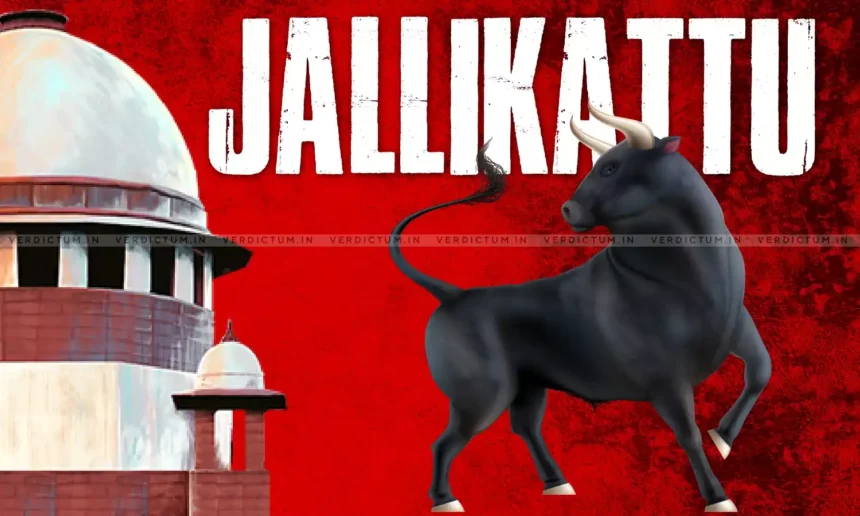The Supreme Court is set to deliver its verdict today on several petitions challenging the laws of Tamil Nadu and Maharashtra that permit the bull-taming sport ‘Jallikattu’ and bullock cart races. A five-judge bench had reserved its judgment on the matter in December last year. Jallikattu is a traditional sport held during the Pongal festival, but it has faced controversy due to concerns about the safety of both bulls and participants.
Jallikattu was initially banned by the Supreme Court in 2014. However, the Tamil Nadu government passed ordinances in 2017 and 2019 to legalize the practice. During the hearings, the state government defended Jallikattu, arguing that there was no cruelty involved towards the bulls and that the sport held cultural significance.
The petitioners, on the other hand, contended that these races allow animal cruelty and contradict the objectives of the Prevention of Cruelty to Animals Act. They argued that the laws do not effectively prevent harm to the animals involved.
The Tamil Nadu government countered these arguments, stating that the bulls used in Jallikattu were cared for by farmers throughout the year. They also cited examples from countries like Peru, Colombia, and Spain, where bullfighting is considered a part of the cultural heritage.
During the proceedings, senior advocate Shyam Divan, representing one of the petitioners, described Jallikattu as a blood sport. However, the bench questioned this characterization, highlighting that participants engage with the bulls using their bare hands and that it is not a weapon-based activity.
The bench further emphasized that any activity involving risk does not automatically classify it as a blood sport. They drew a parallel with mountaineering, where people face dangers but still participate in the adventure. The bench stated that the spirit of adventure cannot be curtailed.
The Supreme Court’s verdict will provide clarity on the legality of Jallikattu and bullock cart races, addressing the concerns raised by both supporters and opponents of these traditional events.


